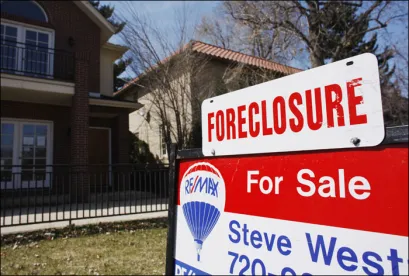On March 27, 2020, the Coronavirus Aid, Relief, and Economic Security Act (“CARES Act”) became law. In addition to providing relief to various industries and businesses, the $2 trillion stimulus package placed several temporary moratoriums, prohibitions, and limitations of the rights of lenders and servicers of federally-backed loans. These include moratoriums on foreclosures and evictions, instituted mandatory forbearance obligations, and significantly relaxed loan modification requirements. These mandates may create a variety of litigation risks for distressed and delinquent loans. This Alert provides a brief outline of the obligations created by the CARES Act, identifies some potential litigation concerns, and discusses certain considerations for minimizing risk of exposure.
Key Provisions of the CARES Act
| • |
|
Initial Moratorium on residential foreclosures
|
| – |
|
Temporary 60-day moratorium on foreclosures or foreclosure-related evictions
|
| – |
|
Applies to all “Federally backed loans”
|
| – |
|
This includes HUD, FHA, VA, Dept of Ag, Fannie Mae/Freddie Mac owned or securitized
|
| – |
|
Includes initiating “any foreclosure process,” which appears to include all stages of judicial and non-judicial foreclosures or post-foreclosure evictions
|
| – |
|
For single-family borrowers, 180 days immediately, plus additional 180 days upon request of borrower
|
| – |
|
Forbearance available regardless of delinquency status
|
| – |
|
For multi-family borrowers, 30 days immediately, plus right to two additional 30-day extensions
|
| – |
|
Forbearance only available if borrower current as of February 1, 2020
|
| – |
|
Servicers have an affirmative obligation to provide notice of forbearance right to borrowers
|
| • |
|
Additional Eviction Moratorium
|
| – |
|
120-day moratorium on evictions for federally-backed properties
|
| – |
|
Applies to all property insured, guaranteed, supplemented, protected, or assisted in any way by HUD, FHA, VA, Dept of Ag, Fannie Mae/Freddie Mac, or under USDA Rural Development Voucher Demonstration Program, Violence Against Women Act of 1994
|
| – |
|
Loan mods may be made for COVID-19 hardship without categorization as “troubled debt restructuring” until the earlier of 60 days after expiration of national emergency order or December 31, 2020
|
| • |
|
State Regulations and Private Loan Guidelines This Alert only discusses NY and CA guidelines as examples of additional state action related to the COVID-19 pandemic. Lenders and servicers may wish to be diligent in reviewing any state-issued COVID-19 mandates, prohibitions, regulations, and guidelines for any state where they service debts
|
| – |
|
Governor Cuomo issued Executive Order 202.9, which mandated that any bank subject to DFS to grant 90-day forbearances
|
| – |
|
The New York Department of Financial Services (NYDFS) issued regulations regarding application of executive order
|
| – |
|
Does not apply to New York-licensed branches of agencies of foreign banks
|
| – |
|
Only applies to residential mortgages
|
| – |
|
Although NYDFS guidance encourages not charging interest or providing negative credit reporting during forbearance period, there are no explicit prohibitions
|
| – |
|
Governor Newsom issued an executive order authorizing local governments to impose limits of residential and commercial foreclosures and evictions resulting from COVID-19 hardship
|
| – |
|
Governor Newsom also reached an agreement with numerous financial institutions to provide additional relief
|
| – |
|
90-day mortgage forbearances, with no interest or fees during forbearance period and no negative credit reporting
|
| – |
|
60-day moratorium on initiating foreclosure sales or evictions |
Potential Litigation Pitfalls
The broad scope and application of the CARES Act creates a variety of potential litigation risks. Though each case should be evaluated on an individual basis, these are some issues lenders and servicers should be aware of with pending matters:
| – |
|
There is no exception in the law for ongoing foreclosures
|
| – |
|
Not limited to just FHA loans, includes loans owned OR securitized by Fannie Mae or Freddie Mac
|
| • |
|
Prohibition on charging penalties, interest, fees, etc. during forbearance period
|
| • |
|
Prohibition on demanding additional evidence of financial hardship for forbearance requests
|
| • |
|
After expiration of foreclosure moratorium, may wish to review and, if necessary, adjust default calculations used for trustee’s sale notices and judicial foreclosure motions
|
| • |
|
There may be an uptick in debt validation letters and qualified written requests after moratorium and forbearance periods expire |





 />i
/>i

